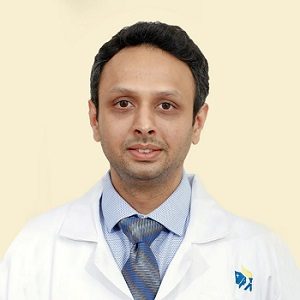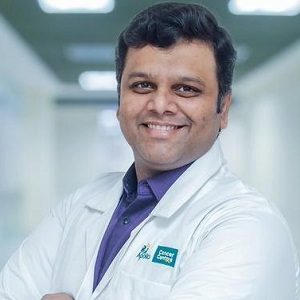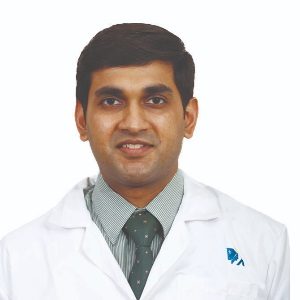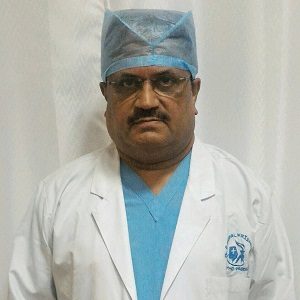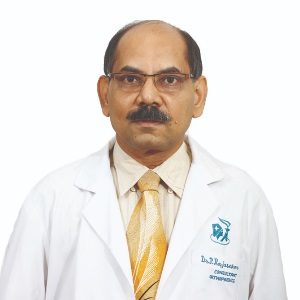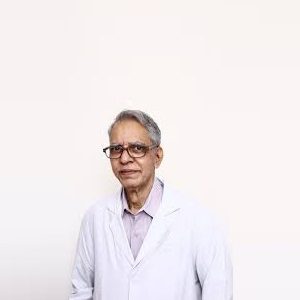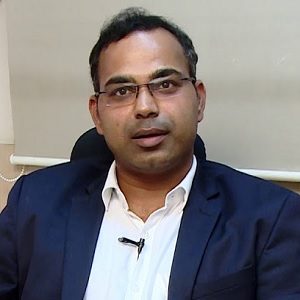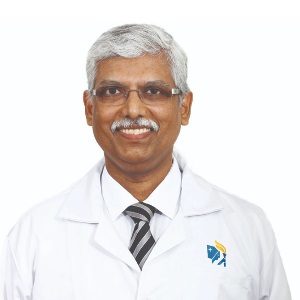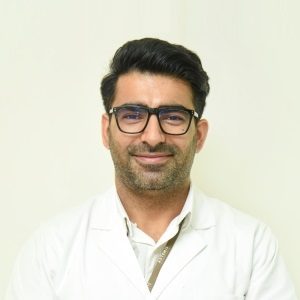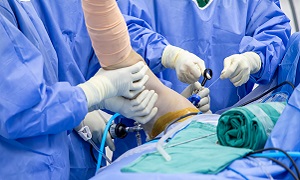Best Doctors in India for Dislocated Shoulder Treatment
- Orthopedic Surgeon, Chennai, India
- Over 12 years’ experience
Profile Highlights:
- Dr. Kunal Patel consults on Orthopedics related problems at the Apollo hospitals of Chennai.
- He was part of the team which set Limca’s World record of Highest Joint Replacement Surgeries in March 2015.
- Dr. Kunal Patel is well-trained in Asia’s first and only Brainlab Arthroplasty Computer Navigation Orthopedic suite and has completed several fellowships related to his field.
- Orthopedic Surgeon and Spine Surgeon, Chennai, India
- Over 12 years’ experience
Profile Highlights:
- Dr. Madhu Kiran Yarlagadda is an orthopedics – consultant specializing in Joint and spine surgery and works at the Apollo hospitals of Chennai.
- Dr. Madhu Kiran Yarlagadda’s team carried out Robotic Spine Surgery for the first time in South-East Asia and performed Endoscopic Transforaminal Spine Surgery in Chennai.
- He treats spine diseases and has the facilities and expertise to perform robotic spine surgery. Along with that, he treats patients with joint and other orthopedic issues.
- Orthopedic Surgeon, Chennai, India
- Over 16 years’ experience
Profile Highlights:
- Dr. Arun Kannan is a well-known joint replacement surgeon at the Apollo Hospitals, Chennai.
- In his 16 years of experience doing joint surgeries and treating orthopedic issues, Dr. Arun Kannan has worked in the US as well as India and has gained enough trust and recognition from his patients.
- He has been excellent in his academics as well as practice because of which he received prizes and appreciation in both.
- Orthopedic Surgeon, Chennai, India
- Over 40 years’ experience
Profile Highlights:
- An Orthopedic doctor by profile, Dr. Gopala Krishnan has around 40 years of experience in his field.
- After his initial studies in medicine in Chennai, Dr. Gopala Krishnan moved to the US to pursue M.Ch in Orthopedics in 1984.
- His experience and dedication have helped him gain recognition in the field and build trust among patients.
- Orthopedic Surgeon, Chennai, India
- Over 24 years’ experience
Profile Highlights:
- Dr. Rajasekar P is an experienced orthopedist with 24+ years of experience.
- He treats and consults patients with problems with Joints, fractures, osteoporosis, Spine injuries, etc.
- He is an MBBS and DNB qualified doctor and practices at Apollo hospitals of Chennai.
- Orthopedic Surgeon, Chennai, India
- Over 50 years’ experience
Profile Highlights:
- Dr. Uma Chandran S specializes in orthopedics and is a veteran surgeon at Apollo Hospitals of Chennai.
- He has spent more than 50 years in the field of orthopedics and is believed to be one of the best orthopedists in Chennai.
- He is also known for his expertise in bone replacement surgery, spine movement, fracture treatment, etc.
- Spine Surgeon and Orthopaedic Surgeon, Chennai, India
- Over 18 years’ experience
Profile Highlights:
- Dr. Muralidharan Venkatesan is a consultant in spine surgery from Chennai.
- He provides comprehensive cervical (neck), thoracic (upper back), and lumbosacral (lower back) conditions treatment.
- Dr. Venkatesan pursued MBBS, MRCS, and a fellowship FRCS and shifted his specialization to spinal surgery.
- Dr. Venkatesan has his papers published in several journals.
- Orthopedic Surgeon and Spine Surgeon, Chennai, India
- Over 23 years’ experience
Profile Highlights:
- Dr. Ravi Venkatesan is a spine surgery specialist from Chennai, Tamil Nadu.
- His experience in spine surgery, orthopedics, and spine deformity surgery date back nearly 23 years.
- Dr. Venkatesan has performed several surgeries and has been an active member of various orthopedics groups.
- Many organizations have recognized his service and have awarded him for his dedication.
- Orthopedic Surgeon, Gurugram, India
- Over 10 years’ experience
Profile Highlights:
- Irfan Banday is a brilliant young orthopedic surgeon with over 10 years of experience handling trauma surgeries and ortho problems.
- Irfan received Fellowship in Knee Arthroscopy and Arthroplasty and Shoulder and Upper Limb Arthroscopy, Arthroplasty & Reconstructive Surgery.
- He manages simple & complex fractures, Reconstructive Surgeries of the Knee, Shoulder, Upper limb, and complex tendon transfers.
- Orthopedic Surgeon, Gurugram, India
- Over 18 years’ experience
Profile Highlights:
- Sandeep Chauhan is one of the best orthopedic surgeons and an expert in managing complex fractures, even in children, soft tissue injuries, septic arthritis, and osteomyelitis.
- He performs fracture reconstructions; and arthroplasty procedures like surface replacements, cemented and un-cemented THR, Total Knee Replacement, musculoskeletal infections, UKA knee, hip, shoulder, & elbow replacements.
Best Hospitals in India for Dislocated Shoulder Treatment
Dislocated Shoulder
Dislocated shoulder is an injury in which the upper arm bone pops out of the cup-shaped socket which is a part of your shoulder blade. Your shoulder is the most mobile joint in the body, and it allows the arm to move in multiple directions. Due to this ability to move, the shoulder is not only unstable but also the most dislocated joint in the body.
Shoulder dislocations occur when the head of the humerus is removed forcibly from the socket in the glenoid fossa. The shoulder can get dislocated in several different directions, and a dislocated shoulder is described by the location, where the humeral head ends up after it gets dislocated.
Dislocations in younger people generally arise from trauma, which is usually associated with sports such as football or basketball. When it comes to older people, they are prone to dislocations due to the gradual weakening of the ligaments and cartilage that supports the shoulder. Even in such cases, some force needs to be applied to the shoulder joint to make it dislocated.
If you suspect a dislocated shoulder, it is important to seek prompt medical attention.
Symptoms
A dislocated shoulder generally shows the following signs and symptoms:
- A visibly deformed or out-of-place shoulder
- Intense pain
- Inability to move the joint
- Swelling
- Bruising
Sometimes, the dislocation might also cause numbness, weakness, or tingling near the injury, such as in your neck or down your arm.
If you suspect a shoulder dislocation, see a doctor right away. While you are waiting for medical attention, please note the following points:
Don’t move the joint – Splint or sling the shoulder joint in its current position and remember not to try to move the shoulder or force it back into its place. This can cause damage to the shoulder joint as well as its surrounding muscles, ligaments, nerves, or blood vessels.
Ice the injured joint – You can choose to apply ice to your shoulder as this can help you to reduce pain and swelling as it controls any internal bleeding and the buildup of fluids in and around your shoulder joint.
Causes & risk factors
The shoulder joint is known to be the most frequently dislocated joint in the human body and since it moves in several directions, your shoulder can get dislocated downward, forward, backward, completely, or partially. However, most dislocations are known to occur through the front of the shoulder.
A strong force, such as a sudden blow to your shoulder, is required, to pull the bones out of their place. In some cases, extreme rotation of your shoulder joint can also pop the ball of your upper arm bone out of your shoulder socket.
In most cases, a dislocated shoulder is caused by sports injuries. A hard blow to your shoulder during a motor vehicle accident is also a common cause. You may also dislocate your shoulder during a fall, such as from a ladder.
Diagnosis
When a patient shows signs of a shoulder dislocation; pain control, and joint relocation are the primary considerations. However, at the same time, your doctor needs to understand the mechanism of injury and the circumstances surrounding it. It is important to know if this is the first shoulder dislocation or whether the joint has suffered injury previously. In addition, your doctor might ask a few questions about medications, allergies, the time of the last meal, as well as your past medical history.
Physical examination of the shoulder will be required, and it will begin with an inspection. Plain X-rays are also most likely going to be required, to confirm the diagnosis of shoulder dislocation, and to make certain there are no broken bones associated with this dislocation.
Treatment
If your shoulder dislocation is simple, without any major nerve or tissue damage, then the shoulder joint is likely going to improve over a few weeks. It is best not to resume activity too soon after your shoulder dislocation, as it might cause not only cause injury to your shoulder joint, but it may cause it to dislocate again.
If your shoulder dislocation is serious, the following treatments may follow:
Closed reduction
Your doctor is going to try certain gentle maneuvers which should likely help your shoulder bones get back into their correct position. Depending on the amount of pain and swelling, you may also require a muscle relaxant or sedative or, in rare cases, a general anesthetic before manipulation of your shoulder bones. When your shoulder bones are back in their place, the pain should go almost immediately.
Medication
Surgery
Immobilization
A special splint or sling might be used for some days to keep your shoulder from moving. How long you will need to wear the splint or sling will depend on the nature of your shoulder dislocation and how soon the splint is applied after your dislocation.
Rehabilitation
After your shoulder splint or sling is removed, you’ll need to start a gradual rehabilitation program which is designed to restore range of motion, as well as strength and stability to your shoulder joint.

